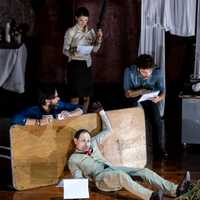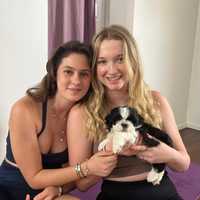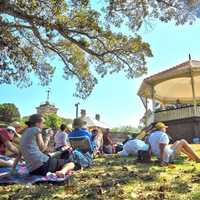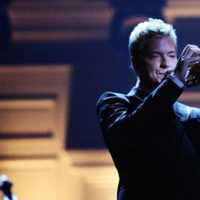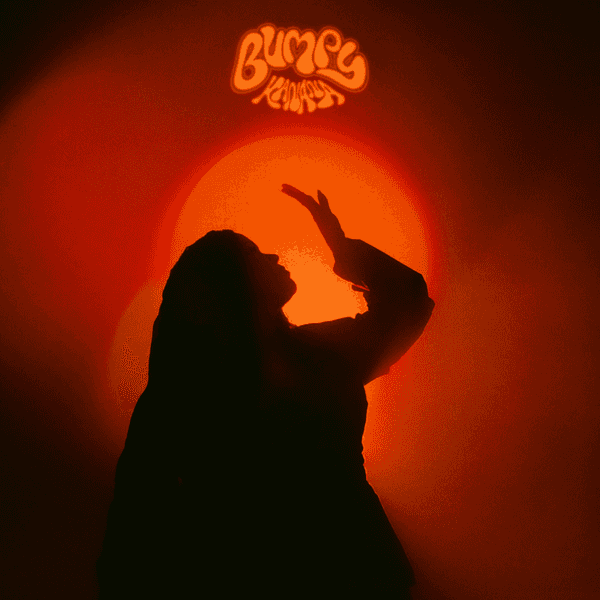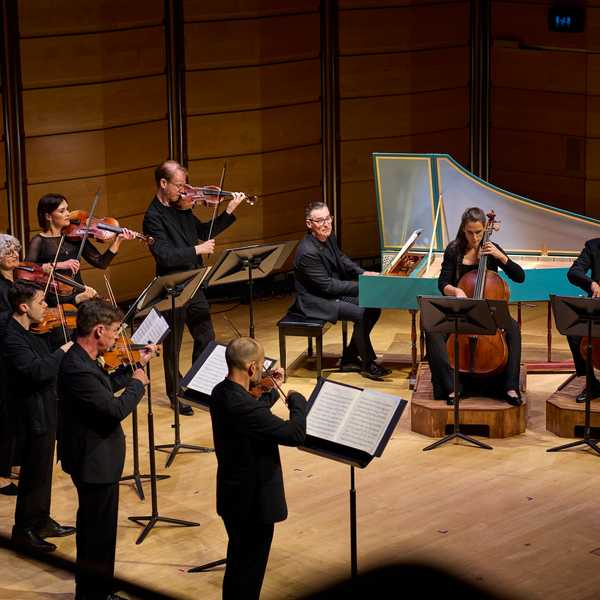Approx. 8 minute read
One of the peculiar habits of humans is to assign gender stereotypes to genderless things, such as musical instruments. One thing that I love about Sister Rosetta Tharpe is that she was an early progenitor of electric guitar rock ‘n roll. She was rocking the socks off crowds before Chuck Berry invented his duck walk; before Elvis shook his pelvis; before the voodoo child, Jimi Hendrix, set his guitar ablaze (figuratively and literally); and long before Bob went electric. One of the things that I don’t like about her story is that this was all lost along the away in our collective memory and history records. Perhaps if we learnt more about Sister Rosetta and her influence on some of the artists mentioned above (who openly cited her as an inspiration) earlier on, we wouldn’t have such an obstinate male gender association with the guitar.
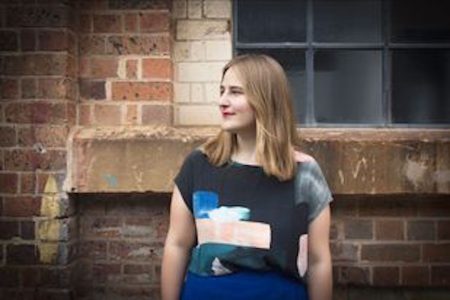
I think attitudes are changing, especially with incredible artists like Hilary Geddes demonstrating admirable technical skill and expressive capacity across jazz and alternative rock. Here’s what Hilary had to say:
Sonia de Freitas: Hi Hilary, how are you and where does our interview find you today?
Hilary Geddes: Hello Sonia! I’m very well, thank you. I’ve just had a swim at Redleaf Beach and am now settling in with a coffee at the café here to answer these questions. Today is one of those glorious Sydney days where the harbour is one big shimmering, glittering gem so I’m feeling particularly joyful to be near the water right now.
SdF: Can you tell me about your journey in music? When did you know that you were going to make music your career?
HG: I grew up in Griffith, NSW and my parents are big music fans so there was always an album playing in the background growing up and as a family we all enjoyed listening and talking about music. Family trips to Bluesfest at Easter definitely had a formative effect on me. I started learning the guitar when I was six years old and piano a few years later. I didn’t have a consistent guitar teacher until I moved to Sydney but I did have a fantastic piano teacher. Her name is Mrs Dawn Beaumont-Stevens and she really opened my ears to classical piano music and was very patient with me, especially when it came to sight reading. At Griffith High School, I encountered lots of incredible musicians who had remarkable aural skills and loved jamming and exploring grooves. A lot of my guitar-learning came from trying to work out songs by ear so I could play with them.
I was always confident that music would be part of my life, although I don’t think I really committed to the idea of it being a career until I was accepted at the Sydney Conservatorium in 2014. I had moved to Sydney to study Music/Arts at UNSW a year earlier and I was really loving my arts subjects. However, one great aspect of the Music course was that I was able to have a guitar teacher for the first time in years and I was incredibly fortunate to learn from Steve Brien. It was actually a very uninformed decision, I had simply requested a teacher who was closest to me geographically as I was still getting the hang of the Sydney bus system. Little did I know that Steve would completely change the trajectory of my life – not only in terms of my approach playing and broadening my listening, but also in suggesting that I audition for the Con at the end of my first year at UNSW. I really appreciated his mentorship.
I think because I received a last-minute offer at the Con, the feeling of not wanting to squander the opportunity of studying there – in that specialised and hyper-focussed environment – felt particularly heightened. I think that’s when I thought I’d better try my hardest and learn as much as possible while I was there to see if it would be possible to play music in a professional context.
SdF: You have an impressive list of accolades to your name including; winning the Jann Rutherford Memorial Award in 2019 and the ABC Jazz Scholarship this year. Your guitar work impressively spans a multitude of formats as shown in; your punch of alternative grit in The Buoys, your aptitude for swinging jazz solos in Pharos band, and a showcase of sublime jazz work in the Hilary Geddes Quartet. Can you tell me about your creative process when producing your work?
HG: I think I’ve always been drawn to music that has some kind of improvisational element. It’s something I consistently find exciting and fulfilling, and ties together the groups you’ve listed above, in spite of their aesthetic differences. I also love collaboration and learning from other musicians. There are so many different approaches to improvising, ways of playing and communicating ideas – I find it really thrilling to explore different processes with different groups and pick their brains about how they think about and approach their playing.
Hilary performing ‘Linda’ as part of the alt rock outfit, The Buoys
SdF: Is there anything particular you do that is special to your creative process?
HG: I think I tend to gravitate towards ideas that are ergonomic on the guitar, or are particularly guitaristic. This primarily because of the guitarist Andreas Wahl, who was my teacher during my university exchange at the Hochschule für Künste Bremen in Germany in 2016-17. He was a profoundly influential teacher who effectively gave me the space to explore the guitar in a fairly non-prescriptive manner. In the years prior, I had actively stepped away from playing what felt ‘natural’ or ‘easy’ to my fingers and ears (and my apologies for use of prescriptive language here!). This was in part because I was trying to work out if I was playing that way because it felt fulfilling or if it was because these ideas were all I knew how to play. Andreas essentially said to me that it’s kind of counter-intuitive to shy away from using techniques that were made for the guitar and why not embrace them? (This feels blindingly obvious on the re-tell, but it was a really ‘penny drop’ moment.)
A performance of ‘Pale Vale’ and ‘Adjansur’ by Hilary Geddes and Oscar Henfrey
SdF: Who is your sounding board? There must be someone that you trust to give you brutally honest feedback on your music. How do they fit into the process?
HG: My band members. I really value their opinions and usually it’s a constant feedback loop that’s happening consistently from rehearsals to mid-song on the bandstand.
SdF: What was the first song that you remember making an impact in your life and why was/is it so important?
HG: My parents gifted me the Priscilla Queen of the Desert soundtrack for my christening, which was always on high rotation on car trips and I think there’s a strong link from that to my present love for Nile Rogers and his strumming.
SdF: Have you experienced particular challenges as a female musician? How did you overcome these challenges and what do you think needs to change for others to avoid these challenges in the future?
HG: I think representation and visibility is very important. I definitely clocked the gender imbalance in my cohort at the Conservatorium, and conversations around gender and race were pretty rare and oftentimes rather demoralising while I was a student there. I think the jazz course in general would benefit greatly if there were a larger emphasis on learning about the context(s) in which jazz is/has been played and viewed, and if there were more discussions regarding the implications of who is included and excluded in those spaces. I think we can all learn from the writings by New Jazz Studies scholars such as Scott DeVeaux and Sherrie Tucker (among others), who have set about more broadly deconstructing hegemonic narrative constructions around jazz. Because of their writings, and because of the work of people such as Sandy Evans in the Sydney music community, I am optimistic that positive change is happening. For me personally, being awarded the Jann Rutherford Memorial Award in 2019 was instrumental in facilitating me to write music and form a band under my own name – an opportunity for which I am hugely grateful. Working with and forming relationships with other women musicians has also been insurmountably valuable to my own musical development.
SdF: So, what’s on the horizon for you? Any projects you’re working on or new releases to share?
HG: On 11th March, I am premiering a solo guitar work titled Upstream Down River as part of the Tura Adapts 2020: No Borders commission at the Old 505 Theatre. Performed live, this piece will accompany Slow TV footage of an ordinary, durational boat passage on the Nepean and Warragamba rivers by the incredible Paul van Kan. I’ve never worked with film before so it’s been a really exciting and challenging process and I can’t wait to for you to hear it. The Hilary Geddes Quartet will also be performing a set afterwards. It’s our first gig since November and I can’t wait to play with Alexander Inman-Hislop, Maximillian Alduca and Matthew Harris again – it’s always a lot of fun.
To learn more about Hilary Geddes visit: hilarygeddes.com
For more information on International Women’s Day: internationalwomensday.com
Keep an eye out for my next interview in the Shout Sister Shout series where I interview Kristin Berardi.
Did you miss the previous Shout Sister Shout instalment? Read Keyna Wilkin’s Interview here.
Share "Shout Sister Shout: Hilary Geddes (IWD 2021)"
Copy

